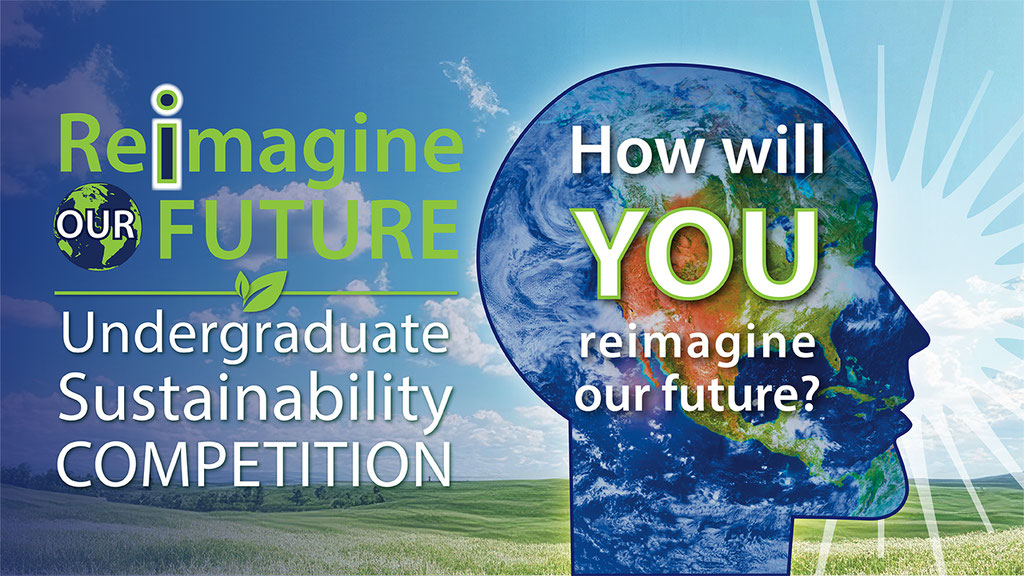2025 Competition is Open - register here!

Connect with us on our challenge Instagram page here - https://www.instagram.com/rof_competition/
The global sustainability crisis requires innovative solutions that promote human flourishing without compromising the natural systems upon which we depend. For this competition, undergraduate students will rise to this challenge by developing an innovative plan or solution that promotes one or more of the United Nations’ Sustainable Development Goals (SDGs) while taking account of other relevant SDGs. In doing so, you will address a particular sustainability problem or challenge which could be at a local, regional, national, or international level anywhere in the world.
Your solution could be a program for a government or private entity, proposal, product or service, system, business plan, event, social media platform, app, game, law, organization, educational initiative, or something else. Your solution must be presented in the form of a fact sheet.
We welcome submissions from individuals and teams of undergraduate students from all participating universities and colleges. The participating universities and colleges are: University of Birmingham (United Kingdom); International Humanitarian University (Ukraine); University of Illinois (Chicago, USA); University of Illinois (Springfield, USA); University of Illinois (Urbana-Champaign, USA); University of Pretoria (South Africa); Universidad del Quindío (Columbia); University of Turin (Italy); Vienna University of Economics and Business (Austria); Waubonsee Community College (USA); Zhejiang University (China).
Undergraduate students from other universities or colleges may serve as members of teams that enter the competition provided the lead student is enrolled at a participating college or university. (For more details see “Competition Rules: Eligibility”).
Professor Mike Yao (UIUC College of Media and the UIUC Gies College of Business) will guide the top three winning teams (irrespective of their institution or country) in identifying viable pathways for further idea development and assist them in securing appropriate resources for their specific projects.
The following awards are also available in 2024, for submissions that meet the required criteria:
Your proposal will be evaluated in terms of its novelty, feasibility, replicability, clarity, whether you make a compelling case for it, and its likely effectiveness in promoting the SDGs. Please ensure that your fact sheet follows the following stipulations:
CONTENTS OF FACT SHEET
Main Body: Use a combination of text and graphics. The text should be for a general audience and concise. The graphics should help communicate the challenge addressed, your proposal, and what it would achieve, if implemented.
These three elements must be included in the fact sheet:
1. The Challenge:
Describe the challenge addressed and explain how addressing this challenge bears on one or more of the SDGs, paying attention to relevant SDGs and keeping in mind the connections between people and nature.
Some questions to consider:
• How widespread is the challenge? Are many people or ecosystems or other forms of life affected?
• Does your proposal deal with a specific location or community? If so, explain.
2. Your Solution:
Clearly and concisely describe your main idea. Some questions to consider:
• Why do you believe the proposed action will be successful?
• Who or what will benefit from this action?
3. Implementation:
Describe your plans to achieve your intended result. Some questions to consider:
• How long will it take to implement your solution? How long will it stay in effect?
• What resources (financial, human, technological, physical, other) does it require?
• Would your proposal require or benefit from partnership with any companies, nonprofits, governments, or other organizations?
• What will be the main obstacles, and have you thought about how to overcome them?
• How will progress be monitored and evaluated?
Format Requirements:
• Fact sheet is 1-3 pages in length
• Paper size: Standard 8.5 in. × 11 in.
• Submit as a pdf document
Front Matter:
This information must be included in a ‘header’ located in a banner above the main fact sheet content:
• Project title
• Your team's name
• Name (or names, in the case of submission by a team) and team captain's email contact
• Key SDGs promoted or impacted by your solution (e.g., SDG 7 and SDG 15)
References and Acknowledgements:
The following information must be included at the end (bottom) of the fact sheet:
You strongly encourage you to seek the advice of a specialist regarding your ideas.
You are welcome to reach out to any of the specialist advisors on our list or you may consult any other specialist in the field of your idea or solution.
Tips and Etiquette
Winning submissions will have that elusive “wow factor,” eliciting feelings of excitement and admiration! These are ambitious projects that the judges would like to recommend to the Gates Foundation for funding!
All entries (fact sheets and team presentations) will be evaluated in terms of the four criteria below for a maximum overall score of 60 points:
| Point Value | Criteria | Description |
| 20 | Novelty / Originality | An original (new, innovative, ground-breaking) idea or synthesis of existing ideas into a new strategy that creatively advances one or more of the SDGs. An entry might also show originality by adapting to a new context (e.g. a different country or cultural or economic context) a strategy already used elsewhere, taking account of local challenges and proposing local partnerships. |
| 20 | Likely impact | The plan is likely to have a significant impact. A convincing case is made for implementability, showing how it would rely on, say, existing or new technology; established or new social organizations, or markets. Also, the initiative can be scaled up and widely replicated and will provide a model for others. |
10 | Connection to the SDGs | The entry mentions all relevant SDGs and indicates how the initiative will advance them. |
| 10 | Compelling Communication | The submission is written with clarity, visually engaging, easy for a non-specialist to follow, powerful, and compelling. |